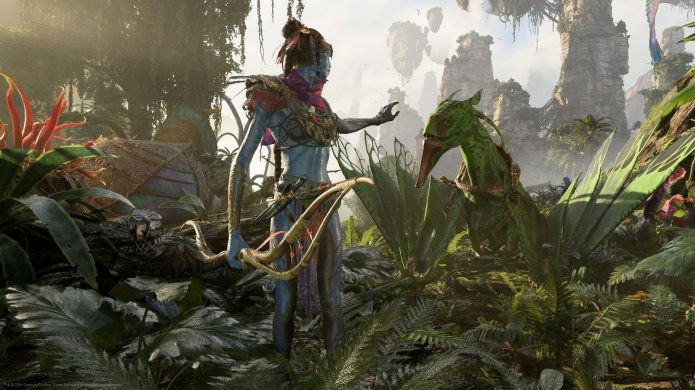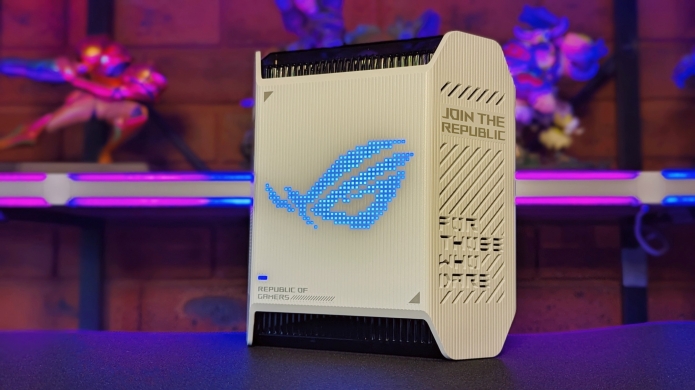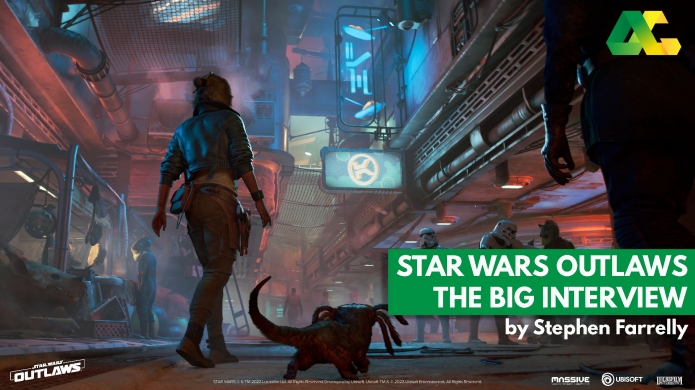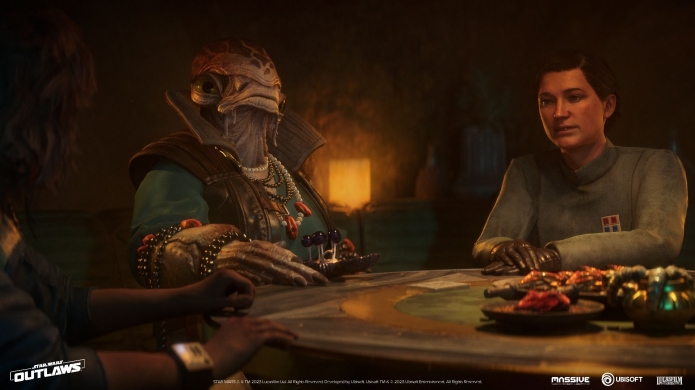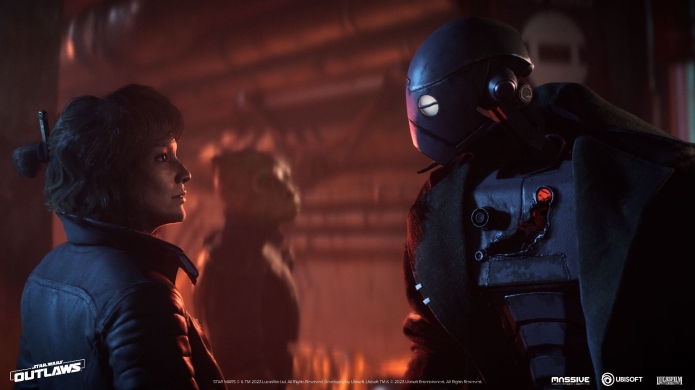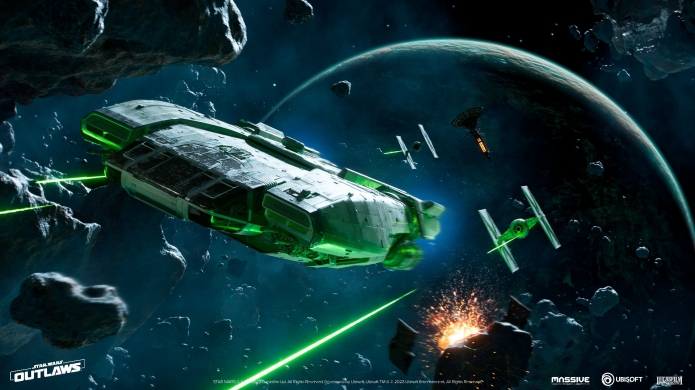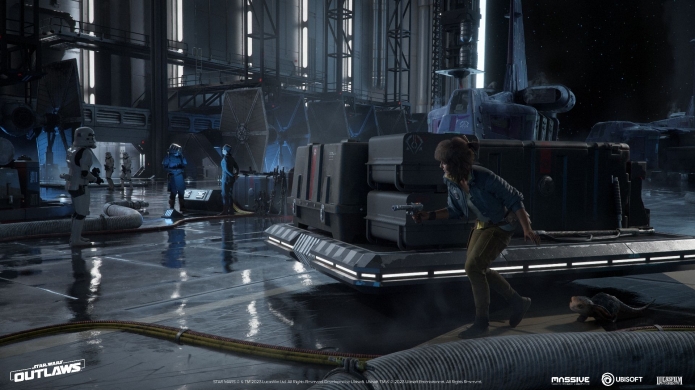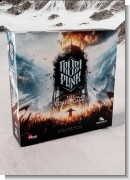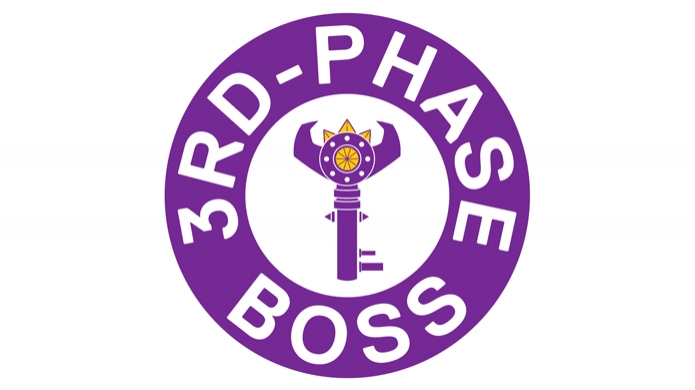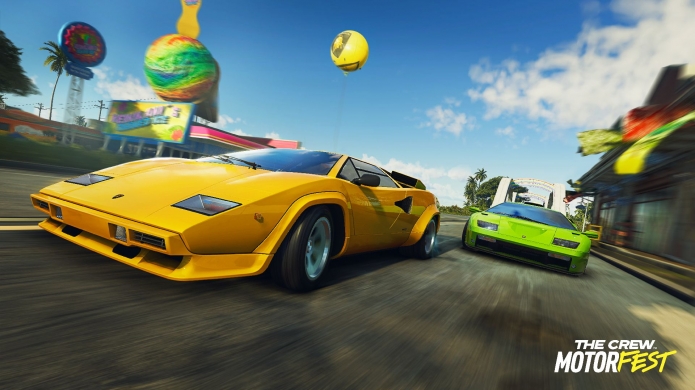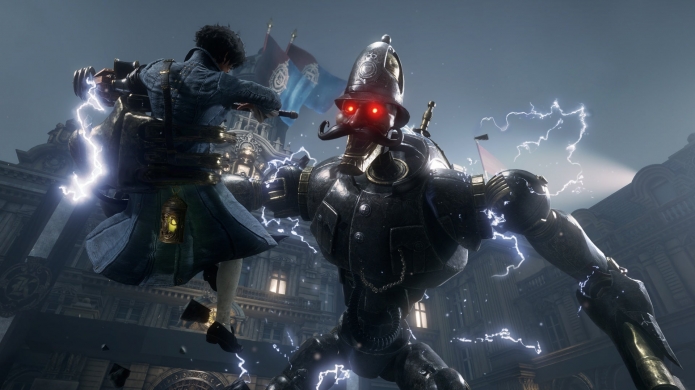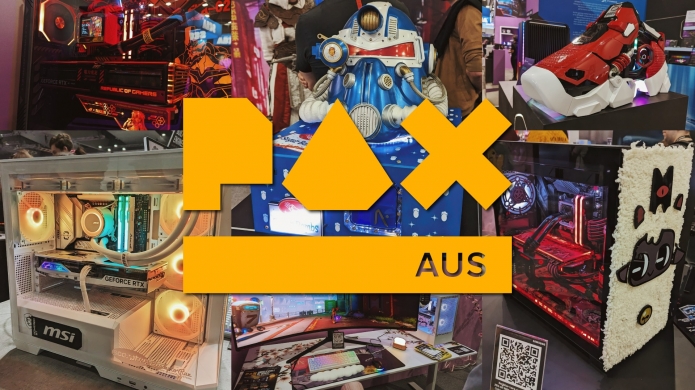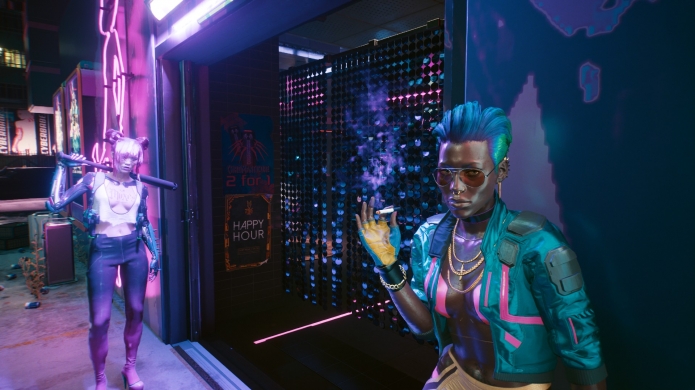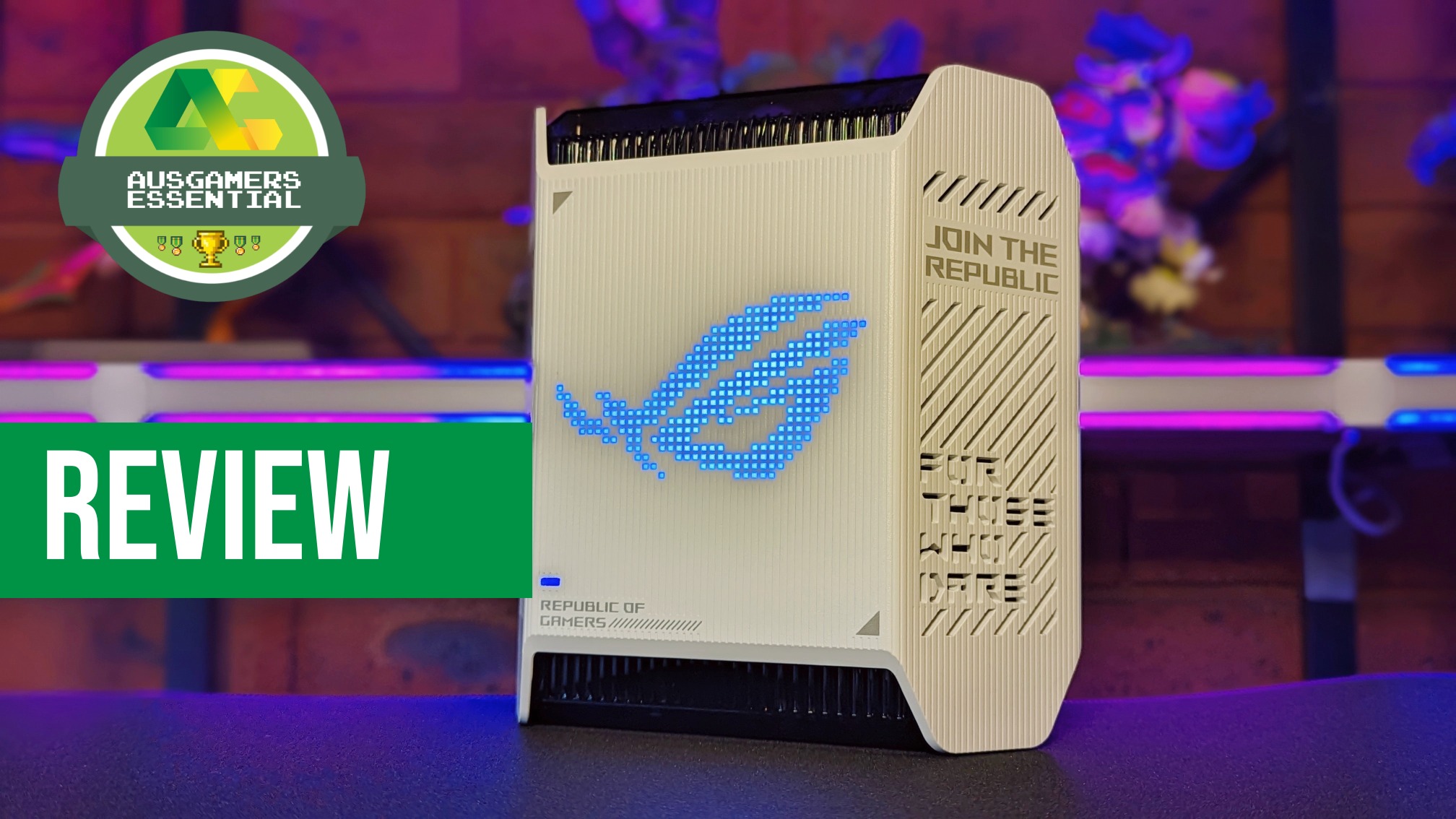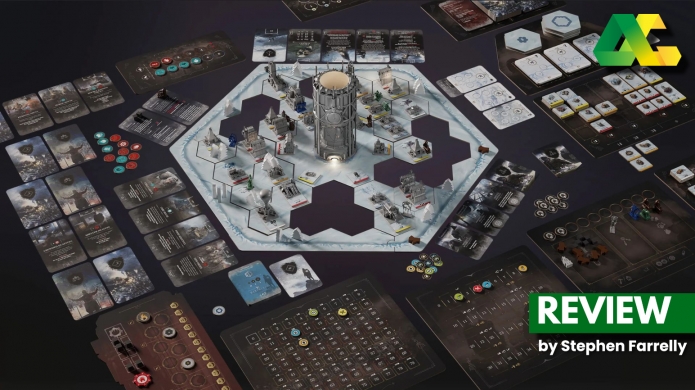Star Wars Outlaws - The Big Interview
Post by Steve Farrelly @ 03:55pm 20/06/23 | Comments
At Ubisoft Forward during 2023's Summer Game Fest, we had the chance to chat with Ubisoft Massive's Mathias Karlson who is serving as game director for Star Wars Outlaws, as well as Navid Khavari who is the game's narrative director. Read on for what they had to share on one of the most exciting Star Wars videogame projects of all time...
Okay. Now, you guys have probably run the gamut, I imagine, from every journalist that's come through here asking questions around nostalgia, about the open-world and things like, "what's the structure of the game? Tell us about Kay…" all of these types of things. What I want to know, however, from the outset is when you get given the opportunity to make a game for a big licence like Star Wars, where do you start?
Mathias Karlson - Game Director: We start with early discussions with [Lucasfilm Games] about what we want to do. I say, "okay, there's an opportunity here to work together" and we [Massive] come [and say] "this is what we're thinking. What do you think?" And [from there] I can really genuinely fast forward pretty quickly because what's been so great with our collaboration, is that we found common ground and excitement in our common ground, basically, instantly.

Related: Star Wars Outlaws - Full Hands-Off Preview
Like, we [always] wanted to do a scoundrel story in an open-world setting where we give the player a lot of freedom but also, we really want to tell a strong story about a strong character. And I think since then, it's just been a very healthy, very frequent collaborative relationship where they bring to us, I think more than anything, the authenticity of tone and feel and helping us slot into our timeline and sometimes go, like, "what about this? Have you considered maybe that? What about this character, or that place?".
I'll let [Navid] talk more about the era, but yeah, I think literally the line we said when we first met Lucas for the first time, it was, like, "we're huge Star Wars fans but we're not scholars". And they [understood], so I think that's the dynamic…
Navid Khavari - Narrative Director: I think I still remember the call where it was, like, okay, we're doing this. And I went to get a shawarma (a kebab, for the Aussies reading) and blasted the Star Wars theme as loud as I could and it was the best tasting shawarma I've ever had. But what was interesting, though, and I promise you this is… very quickly, you just sort of... [in order] to function, you put that scale on the shelf and then in both talking to Lucasfilm and actually building up the writing team as well, when you start looking at it from a point of character, like, "okay, what are the key things we’re going to do here?"
We want an underworld story. We want it to be between The Empire Strikes Back and Return of the Jedi. What is the story we have? What's a character in that time period that would have a fresh perspective; a unique perspective? And honestly, probably, most of all, from all the projects I've worked on, it starts to unfold itself in a very natural way, and what was great was both on the gameplay side and on the narrative side, we were all talking about each other's elements, right?
So I never felt like this is where the narrative ends and this is where the gameplay begins. And when you’re dealing with such a rich tapestry of lore and history and realising that you're going to have the opportunity to tell a story about a scoundrel, you know, she was going to jump on her speeder or jump into a ship and be able to do that kind of at will, it all just unfolds super naturally. So there was the initial freakout and then it just became just a fantastic, fantastic process.
So I want to go a little bit further back because obviously, Massive is probably the most technologically advanced studio within the Ubisoft stable, just in terms of what Snowdrop does and what you guys have done with it and then you also have a reputation around open-world games. Ubisoft itself has lent into that as a company over the last eight or nine years… so it’s natural, in a way.
When the pitch was happening, when you knew you had landed a Star Wars, was it, "we have to go open-world?" Can you talk about that process? Because the key line here is, this is the first true open-world Star Wars game. So what does that mean internally? Was that the pitch, like, "let's do the first one". Or did it happen more organically than that?
Mathias Karlson: It was truly something that came from us. We wanted to do the game this way to offer... if you think about Star Wars, open-world; what is the freedom of an open-world in a Star Wars [game]? That means that range, those three contrasting experiences that we're talking about, right?
Contrasting sure, but ultimately, very connected and flowing together, going from your own ship in space, landing on a planet, free to explore on foot or on speeder, entering the city, sitting down in a cantina, right?. And offering all of that, in one game experience is a first, yes, but it's also such a natural thing to go for, if you have the capacity and the experience to do so.
I think it's a good fit for us. And with this, pointing to Kay, that harmony that nobody was touching on in between story, character, place and gameplay was very precious to us. And the scoundrel archetype and Kay's personality, makes all of that range feel natural. It's not strange that an individual is doing it more. And for you, the player [it ultimately] means a lot of freedom.
Yeah, no. Honestly, as a fan -- and I'm 45-years-old, I was born the year Star Wars came out-- for this to wind up in the era that it is, between Empire and Jedi is just, it sings to me and she's... I've already written about it, but even her hair is 80s! She's got this throwback rogue element to her demeanour and place where she could have hung out with Han Solo, which is, like... That's what I think Star Wars fans of my ilk and my era really want. Did this fall really naturally into place or was it difficult to work out where you wanted to set the game, canonically?
Navid Khavari: I think it just… from what you were saying, we wanted to make the Star Wars game that we want to play, right?
And I think just like you said, as a fan, I remember building little Star Wars stories on the Persian carpet at my parents' house. It was my [older] brother's Kenner toys and before I'd even seen the films. And I think that joy and nostalgia and the possibilities; it's in the team's heart.
So when this opportunity came up, it was, like, this could be the first truly open-world Star Wars game and that's the game we [all] want to play. And I think it just came organically from that joyful space, if that makes sense. And I think at its heart, both from a gameplay and story perspective, that's what was so exciting, was tapping into that.
Mathias Karlson: But it's also where the… because I think we're all of a similar age and we had the... I remember walking past that Yoda statue outside [Lucasfilm] HQ in San Francisco. I was, like, I felt that in my stomach. And now the game is in the same era. So that's special, but it's also where the game wanted to be.
And that collaboration with Lucasfilm, they were a big part of, like, "guys, I think we know exactly where this makes the most sense", given the backdrop of the galactic civil war and the Empire and the Rebels. And that's not really what [Kay]’s concerned about, but the underworld is thriving, right? That's the world she's navigating. And ultimately, you play [in that].
Navid Khavari: And I think the *really* fun part about it, from the writing perspective, is,we know the events of the original trilogy from the Rebel and Imperial perspective, but what about the people on the ground? What about people in the cantinas? What about the people within the underworld pulling off jobs? How do they see, sort of, what the character... like Jabba the Hutt, what does Kay think of Jabba? All those opportunities just sort of came out naturally [in the writing process].
I want to talk canon for a minute because we saw with Star Wars Jedi: Fallen Order that we actually saw some of that wind up in Andor. So Disney has this grand plan. They're weird masters of their Star Wars domain. Is this canon? Does this now fit into Disney's plan for all of Star Wars as it sees itself now? And is there room then for something similar where Kay winds up being mentioned down the track in a Mandalorian episode or something along those lines?
Navid Khavari: I mean, that's the beauty of working with Lucas, to be honest. They want to make sure we're as authentic and true to the full Star Wars tapestry that's out there. We always talked about it as Star Wars is almost this generational story that just kind of expands and it grows and adds new layers and new elements.
And I think that's really been the benefit of working with them because they're aware of the bigger picture, especially in terms of this era. When we started looking at it again, we just realised how much story there is to tell and then sort of fit into that wider narrative. So we'll see what happens down the line.
Time for one more, apparently, so I'll go to game structure. Ubisoft is, as I said, quite versed now in open-world games. For a period there, there were kind of tent poles and structures that were in place that maybe kind of added to a bit of repetition. Can you talk about how the game-world, or “game-galaxy”, really, is structured and whether or not there's kind of a cadence to it or if it's a little bit more, I guess, freeform?
Mathias Karlson: It's going to be a certain degree that we're going to, [which] you'll experience when you actually play the game. But it is the freedom of that range we talked about from space to being the most populous part of the city. It's really at the DNA and the heart of the experience and we will have authored adventures that make use of it, but also you’re in the driver seat of where to go and what to do.
So emergent opportunities and…
Mathias Karlson: Yeah, yeah. So really, following your nose, pointing where you're curious or intentionally pursuing goals, will be a key part of how you play alongside this backbone, this engine of the core narrative. I think one thing that was very precious to us coming back to this idea of harmony is, yes, we meet Kay and Nix in the beginning as a player of the game.
"There is this sort of beat by beat journey for Kay that we want players to enjoy and experience. But even from the walkthrough, if you had snuck through that type of hideout and not fired a shot, your reputation wouldn't have gone down. If you had bribed the Imperial officer, you wouldn't have been made WANTED...”
They've had a relationship for years, which really cements their dynamic duo and what that means in gameplay. But very soon in the adventure, Kay, Nix -- and you with a controller in hand -- are experiencing what's in front of you for the first time together. And that first time experience; harmonising between player and avatar is really key to us.
Navid Khavari: I think I'll just add to that, talking about emergent opportunities. There is this sort of beat by beat journey for Kay that we want players to enjoy and experience. But even from the walkthrough, if you had snuck through that type of hideout and not fired a shot, your reputation wouldn't have gone down. If you had bribed the Imperial officer, you wouldn't have been made WANTED…
Navid Khavari: So it's felt very organic working on this where yes, she has her journey, but those moment to moment decisions and consequences through her reputation, through her interactions with the Imperials, it's just thrilling. It feels very unique and fresh.
Mathias Karlson: Freedom to explore with actions that have consequences, was really two leading principles for us.
Yeah, and I think they get lost a little bit in some open-world games. So it's great to know that that's going to be an element that plays out, in particular because you've never really been in control of a Star Wars story if you're a big fan, right? So the idea that you have some agency in this world is the most tantalising aspect.
Looks like we’re done, thanks so much guys, I could keep talking to you for another two hours!
Navid Khavari: Oh. They're great questions. Thank you so much.
Read more about Star Wars Outlaws on the game page - we've got the latest news, screenshots, videos, and more!


